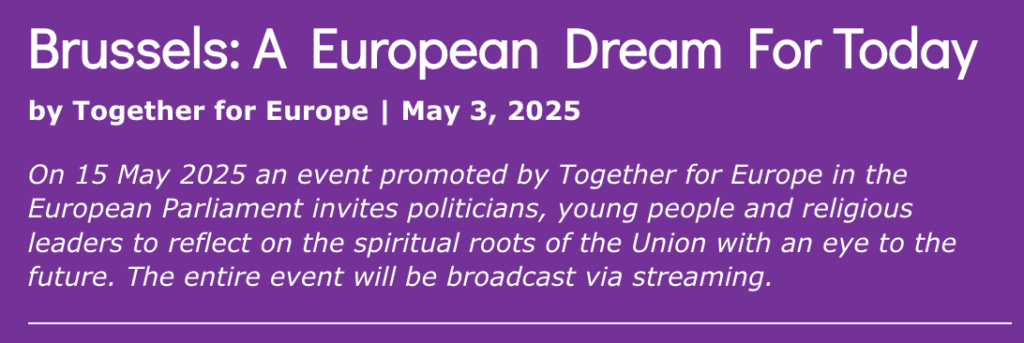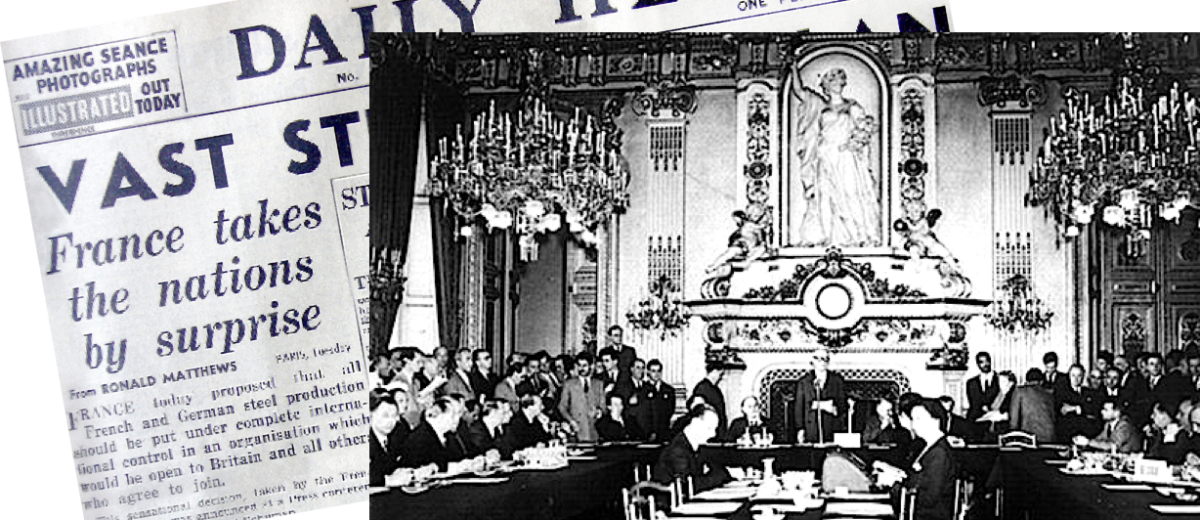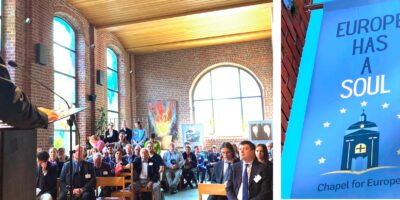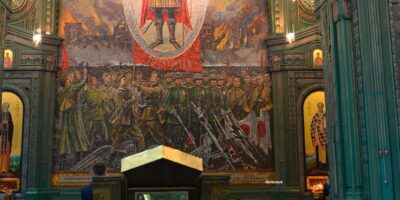Headlines the world over yesterday announced the new pope, Leo XIV.
Headlines exactly 75 years ago today, May 10, 1950, announced a new audacious plan for peace: ‘France takes the nations by surprise’. ‘Sensational decision’. ‘Schuman bomb’.
It was a plan inspired by the teachings of Pope Leo XIII, renowned for his 1891 encyclical Rerum Novarum, articulating modern Catholic social teaching and addressing the challenges of the social upheavals of the Industrial Revolution.
The plan announced at a press conference 75 years ago by the French Foreign Minister, Robert Schuman, has shaped the lives of all Europeans, inside and outside of the European Union. That is why May 9 is recognised as Europe Day, a reminder of this defining moment in post-war European history. For from that day onwards, a plan was on the table for European integration which led directly to today’s European Union.
Pope Leo XIV choice of this name signalled his intention to follow in the legacy of his namesake, addressing the challenges of the social upheavals of today’s digital and political revolutions. The Church’s role was to be a ‘beacon illuminating the dark nights of this world’, the pope said in his first address. Just a few weeks ago, responding to nationalistic and exclusionary statements by the American vice-president, the then-Cardinal Robert Prevost had posted: ‘JD Vance is wrong. Jesus doesn’t ask us to rank our love for others.’
Schuman’s plan was a similarly clear statement of equality, inclusion, reconciliation, solidarity and love for neighbour. Read on one level, it was a bold but simple plan to bind former enemies – particularly France and Germany – so closely together economically that war would become ‘not merely unthinkable but materially impossible’.
It proposed pooling coal and steel production – critical industries for military power – under a shared, supranational authority, bringing the nations together in interdependence and mutual accountability. Although the guns had fallen silent five years earlier, real peace had not yet been established in Europe. Stalin’s blockade of Berlin, and the Allied response of the Berlin airlift less than two years before was a prelude to the Cold War to follow. Those were still turbulent times. Europe was still suffering a severe case of post-trauma stress disorder. Scattered families, bombed cities, disrupted lives and broken futures seemed insurmountable obstacles to true peace.
Soul
What would it take to heal a city, a nation, a continent from such brokenness? What was it in Schuman’s three-minute speech that started the healing process?
While the plan proposed economic cooperation, Schuman would later warn that the project had to be more than just economic and technological; it needed a soul.
Read on a deeper level, the Schuman Declaration is deeply moral, even spiritual, rooted in values of the heart. He did not envision Europe as a ‘Christian club’ but insisted that its humanist, democratic culture was impossible without its Christian roots.
Firstly, the declaration embodied a spirit of forgiveness and reconciliation. Never before in history had a victor treated the fallen foe as an equal, as did France to western Germany with this announcement.
Without using religious jargon, Schuman infused the declaration with values the needed for the rebuilding of post-war Europe. The core values of the Schuman Declaration were:
- Peace through cooperation, not domination.
- Solidarity among nations, rather than competition.
- Supranational governance as a new form of international order, limiting aggressive nationalism.
- Democracy and rule of law as cornerstones for building trust between states.
Two sources
Schuman’s personal spirituality had two sources.
From his youth he was schooled in the Social Teaching of Leo XIII – as were his two colleagues Konrad Adenauer in Germany and Alcide de Gasperi in Italy.
Building on the concept of imago Dei, that every person was created in the Creator’s image, this teaching championed the solidarity of the human race and thus the concept of seeking the common good of all – not just seeking to make our own nation great.
A second source of Schuman’s spirituality was the Moral Re-Armament (MRA) movement led by the Lutheran evangelist, Frank Buchman. This stressed the centrality of forgiveness and reconciliation for true peace, and that a changed world began with personal change in each one of us.
The news of the new pope came as participants of the first Parliamentary Prayer Dinner gathered in Warsaw, including 37 parliamentarians from almost every party. This was one of a cluster of events around the State of Europe Forum which finishes today as we continue exploring biblical responses to today’s challenges.
Rooted in the Great Commandment to love God and neighbour, the values of peace, solidarity, seeking the common good, equality, mutual accountability and collaboration are as relevant and essential today as they were 75 years ago.

Till next week,




[…] summary_large_imageMay 10, 2025No Comments1 Min Read Twitter Facebook LinkedIn Email Share […]